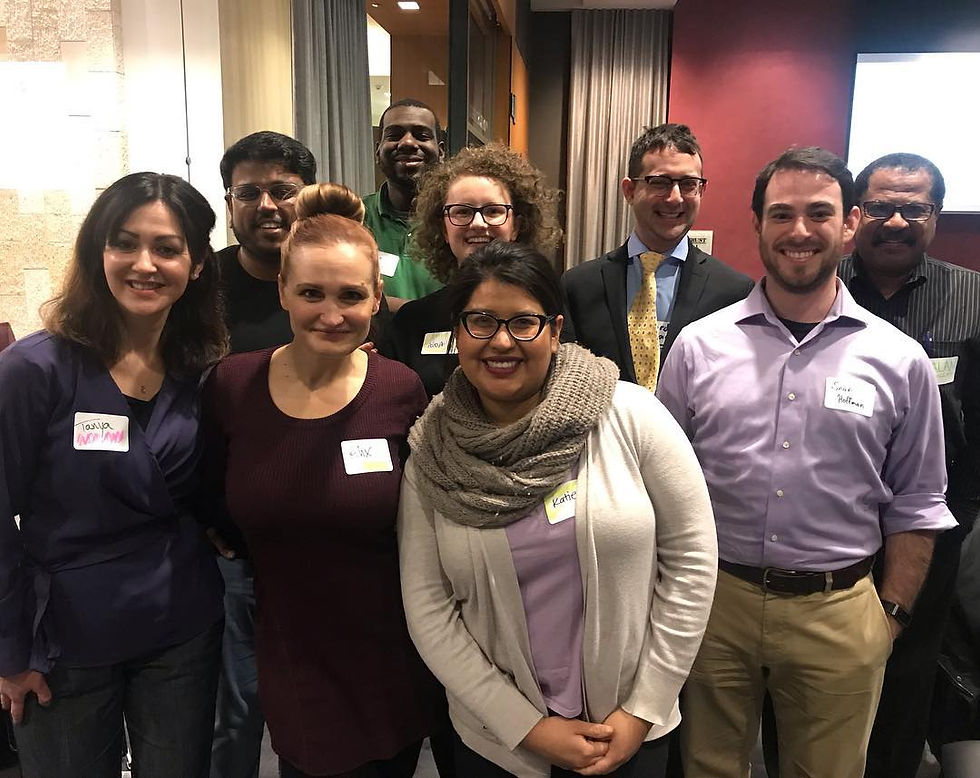Becoming an HR Anthropologist
- Katie Lopes

- Sep 1, 2020
- 4 min read

When I was 18 I decided to move out of Los Angeles and relocate to San Francisco. I had accepted a college admissions offer at San Francisco State University (SFSU) as an undeclared major. A college counselor encouraged me to enroll in classes that piqued my interest to find out what to major in, which is how I started attending Anthropology courses. I was intrigued by the idea that Anthropology, the study of past and present human cultures, could be viewed in various lenses. Anthropology has four major subfields:
Archaeology: study of past human cultures.
Biological: study of humans adaptation to environments.
Cultural: study of societal differences in cultural groups to understand how they vary, and find commonality amongst them.
Linguistic: study how language and communication build a society and culture.
Out of the four subfields, I gravitated towards Cultural Anthropology. The opportunity to understand cultural groups, even within our own communities, fascinated me. My professors had an obvious passion for the field, but the classes focused on an overview lens of the subjects we were studying. It was important to understand the methods anthropologists used to conduct field research, and at the same time I wanted to know all the details regarding the cultural groups observed. In conjunction with my Anthropology courses, I signed up for courses in the Ethnic Studies department of SFSU to expand my knowledge of the history of racial groups. I enrolled in Critical Mixed Race Studies, Africana Studies, Asian American Studies, and Latina/Latino Studies. I credit the Ethnic Studies department for teaching me the depth of what diversity is, and Anthropology for explaining the value of diverse representation in groups.
By the spring of 2011 I had earned enough credits to graduate with a Bachelors of Anthropology from SFSU. Despite feeling like I had just scratched the surface with my studies, I submitted an application for graduation in the Spring of 2011 because my financial aid capped at four years. It was unclear how Anthropology would provide me a career path, but I didn't have the luxury to "think about it". I'd have to get real-world experience and hope I could create a lucrative career with my degree.

I came upon the field of Human Resources by accident. I was attending a Personal Banker training in San Francisco as a result of a promotion at a bank. Although the week long training was supposed to build my knowledge of the financial services, I walked away with an introduction to a new career path. The corporate trainer facilitating the trainings was the first Latina professional I had ever encountered in a corporate position. I was instantly intrigued about her career. Over a casual lunch break that week, she shared her path navigating the Learning & Development (L&D) specialty in HR and gave me valuable tips on how to build my skills if I had a genuine interest in exploring the field.
After that encounter, I focused my efforts to redirect my career path towards HR. However, breaking into HR without a formal education in the matter proved to be a challenge. I spent four years applying for an entry-level HR role to no avail, despite all of my previous work experience and already having a college degree. I decided that if education was the barrier, then I'd enroll in a program to get the essential courses out of the way. Shortly after relocating to Chicago I applied for a post-baccalaureate program at Northwestern University for a certificate in Fundamentals of HR.
The program allowed me the opportunity to resume my curiosity of how to build a career with a foundation of Anthropology. To my surprise, I discovered there were many ways HR could benefit from Anthropology. HR's role is often to understand the "pulse" of an organization and all its people. You have to remain neutral when observing conversations and analyze situations strategically, which from an Anthropologist's perspective is how you would observe a group you're studying. The courses taught me the necessary material to understand the role of HR in an organization and the level of influence the role can have towards Diversity, Equity, and Inclusion efforts. By the time I completed my studies at Northwestern University in 2019, I managed to obtain an entry-level role in HR, which is where my path continues to unfold today. Although it took me a decade to discover my career path, the challenges and experiences I've gone through make me feel confident to accept the challenges in the field of HR.
There are many similarities in studying Anthropology and Human Resources. Both areas focus on understanding the interconnectedness of people's values, to understand how the differences contribute to the diverse culture of a setting. As an anthropologist I can quickly "switch lenses" to observe the communication styles of a conversation to understand different perspectives in discussions. As an HR professional, I can objectively focus on efforts to increase fair and equal practices, and be conscious of potential biases that exist in team settings. Combining the strengths of these two fields can result in empathetic and supportive leadership for an organization.
Organizations are starting to understand the importance of diversity in HR. If the person leading HR has an understanding of cultural awareness, they can be a trusted resource to understand more sensitive challenges the organization may face. In the next evolution of HR, there will be an even greater focus for Diversity, Equity, and Inclusion to report into the role. As that time approaches, I'll continue championing for fair and equal pay, for investing in diverse leadership, and continue giving back to underrepresented communities to include them in future opportunities.




Comments